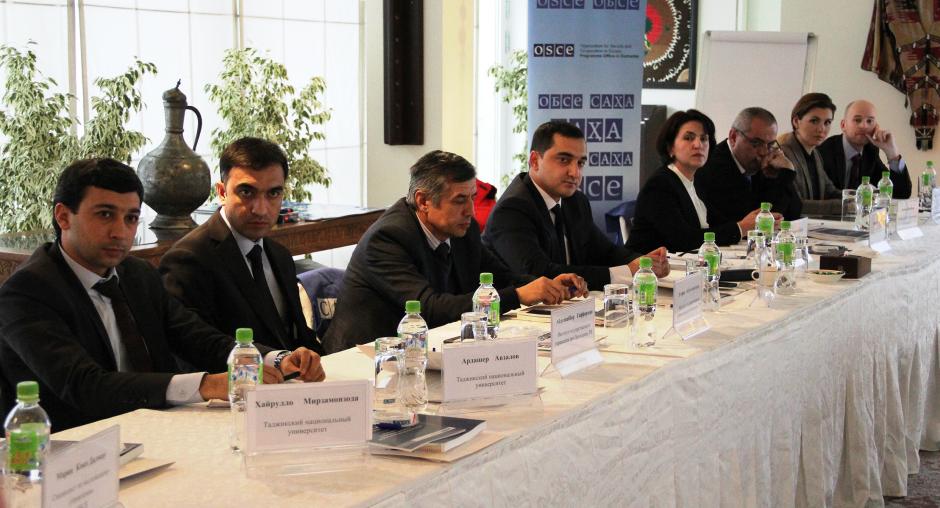OSCE supports Tajikistan in identifying corruption risks in legal acts

A two-day OSCE-supported training course on the anti-corruption screening of legal acts for 20 representatives from Tajikistan’s government authorities, education institutions, and civil society concluded on 21 November 2018 in Dushanbe.
Organized jointly by the OSCE Programme Office in Dushanbe and the Office of the Co-ordinator of OSCE Economic and Environmental Activities (OCEEA), the course aimed at enhancing awareness of international best practice and methodological skills. Representatives of the Agency for State Financial Control and the Fight Against Corruption, the Justice Ministry, the Prosecutor General’s Office, the National Center for Legislation, Tajikistan National University, and the Institute for Public Administration under the President of Tajikistan participated actively.
“Participants were able to effectively identify corruption risks with regard to the law on local government organs, the healthcare code, the law on education, the law on controlling the activity of economic subjects, and the law on the moratorium on controlling the activity of small and medium-sized enterprises,” said Jonas Grätz, OCEEA Economic Adviser.
The course was facilitated by experts from Moldova and the Russian Federation. The workshop provided participants with concepts and methods of identifying different corruption risks in legal acts and of communicating them effectively to outside stakeholders by drafting reports with a clear structure. The utility of digital tools for mastering an increasing workload while preserving a high quality of anti-corruption analysis was also discussed in detail.
“We have received very valuable information and practical knowledge during this course, which will help our Agency to carry out its tasks effectively,” said Yosuman Akramzoda, Senior Inspector of the Agency for State Financial Control and the Fight Against Corruption.
The workshop is part of an OSCE-led regional extra-budgetary project on fostering a participatory approach to preventing corruption in Central Asia. The project is designed to assist governments as well as civil society and businesses in developing and implementing national corruption prevention policies. It is funded by Austria, Belgium, Luxembourg, Norway, Serbia and Liechtenstein.
